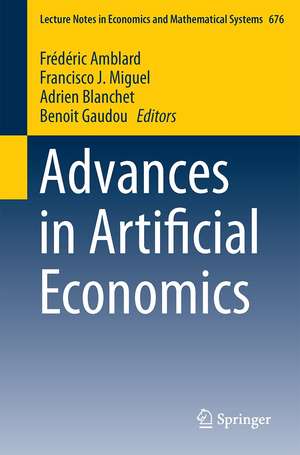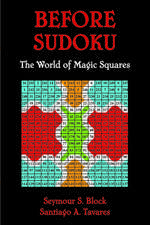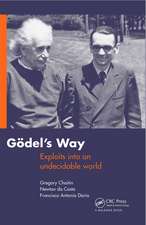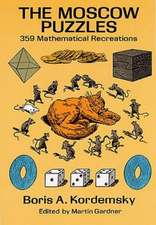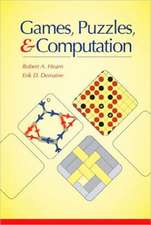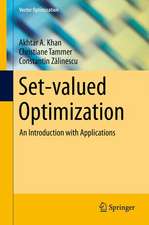Advances in Artificial Economics: Lecture Notes in Economics and Mathematical Systems, cartea 676
Editat de Frédéric Amblard, Francisco J. Miguel, Adrien Blanchet, Benoit Gaudouen Limba Engleză Paperback – 19 noi 2014
Din seria Lecture Notes in Economics and Mathematical Systems
-
 Preț: 360.02 lei
Preț: 360.02 lei -
 Preț: 383.93 lei
Preț: 383.93 lei -
 Preț: 384.09 lei
Preț: 384.09 lei -
 Preț: 380.07 lei
Preț: 380.07 lei -
 Preț: 446.26 lei
Preț: 446.26 lei -
 Preț: 497.37 lei
Preț: 497.37 lei -
 Preț: 380.84 lei
Preț: 380.84 lei -
 Preț: 384.86 lei
Preț: 384.86 lei -
 Preț: 378.34 lei
Preț: 378.34 lei -
 Preț: 399.67 lei
Preț: 399.67 lei - 20%
 Preț: 360.93 lei
Preț: 360.93 lei - 15%
 Preț: 643.16 lei
Preț: 643.16 lei -
 Preț: 379.09 lei
Preț: 379.09 lei -
 Preț: 404.74 lei
Preț: 404.74 lei -
 Preț: 385.62 lei
Preț: 385.62 lei - 15%
 Preț: 644.49 lei
Preț: 644.49 lei -
 Preț: 379.09 lei
Preț: 379.09 lei -
 Preț: 345.50 lei
Preț: 345.50 lei -
 Preț: 425.80 lei
Preț: 425.80 lei -
 Preț: 378.34 lei
Preț: 378.34 lei - 18%
 Preț: 775.65 lei
Preț: 775.65 lei -
 Preț: 392.60 lei
Preț: 392.60 lei -
 Preț: 401.61 lei
Preț: 401.61 lei - 15%
 Preț: 646.43 lei
Preț: 646.43 lei -
 Preț: 382.18 lei
Preț: 382.18 lei -
 Preț: 378.34 lei
Preț: 378.34 lei - 15%
 Preț: 637.59 lei
Preț: 637.59 lei - 15%
 Preț: 647.27 lei
Preț: 647.27 lei -
 Preț: 377.73 lei
Preț: 377.73 lei -
 Preț: 447.84 lei
Preț: 447.84 lei - 15%
 Preț: 644.49 lei
Preț: 644.49 lei -
 Preț: 386.00 lei
Preț: 386.00 lei - 15%
 Preț: 654.43 lei
Preț: 654.43 lei -
 Preț: 415.02 lei
Preț: 415.02 lei -
 Preț: 411.54 lei
Preț: 411.54 lei -
 Preț: 398.92 lei
Preț: 398.92 lei -
 Preț: 398.92 lei
Preț: 398.92 lei -
 Preț: 392.75 lei
Preț: 392.75 lei - 15%
 Preț: 635.47 lei
Preț: 635.47 lei - 20%
 Preț: 653.56 lei
Preț: 653.56 lei -
 Preț: 379.86 lei
Preț: 379.86 lei -
 Preț: 495.46 lei
Preț: 495.46 lei -
 Preț: 447.99 lei
Preț: 447.99 lei -
 Preț: 378.71 lei
Preț: 378.71 lei - 15%
 Preț: 637.13 lei
Preț: 637.13 lei -
 Preț: 385.84 lei
Preț: 385.84 lei -
 Preț: 378.54 lei
Preț: 378.54 lei - 15%
 Preț: 666.55 lei
Preț: 666.55 lei -
 Preț: 380.07 lei
Preț: 380.07 lei
Preț: 638.43 lei
Preț vechi: 751.10 lei
-15% Nou
Puncte Express: 958
Preț estimativ în valută:
122.17€ • 127.81$ • 101.48£
122.17€ • 127.81$ • 101.48£
Carte tipărită la comandă
Livrare economică 03-17 aprilie
Preluare comenzi: 021 569.72.76
Specificații
ISBN-13: 9783319095776
ISBN-10: 3319095773
Pagini: 235
Ilustrații: X, 243 p. 91 illus.
Dimensiuni: 155 x 235 x 17 mm
Greutate: 0.36 kg
Ediția:2015
Editura: Springer International Publishing
Colecția Springer
Seria Lecture Notes in Economics and Mathematical Systems
Locul publicării:Cham, Switzerland
ISBN-10: 3319095773
Pagini: 235
Ilustrații: X, 243 p. 91 illus.
Dimensiuni: 155 x 235 x 17 mm
Greutate: 0.36 kg
Ediția:2015
Editura: Springer International Publishing
Colecția Springer
Seria Lecture Notes in Economics and Mathematical Systems
Locul publicării:Cham, Switzerland
Public țintă
ResearchCuprins
Does Collaboration Pay?- Why Do Firms Exist?- The "Win-Continue, Lose-Reverse" Rule in Cournot Oligopolies.- Organizational Change for Its Own Sake?- Best Practices in Programming Agent-Based Models in Economics and Finance.- Building Artificial Economies.- Spontaneous Segregation of Agents Across Double Auction Markets.- The J-Curve and Transaction Taxes.- Insights from an Artificial Stock Market.- What Is the Impact of Heterogeneous Knowledge About Fundamentals on Market Liquidity and Efficiency.- An Agent Based Propagation Model of Bank Failures.- Direct vs. Side Effects in Financial Contagion.- Saudis and Expats - an Agent-Based Model of the Saudi Arabian Labor Market.- Forbidding Fixed Duration Contracts.- Shadow Economy and Wealth Distribution.- Distribution Effects of Extortion Racket Systems.- Impacts on Stability of Interdependencies Between Markets in a Cobweb Model.- Detecting Key Variables in System Dynamics Modelling by Using Social Network Metrics.- Trade-in Programs in the Context of Technological Innovation with Herding.- Evaluating Scenarios for Upgrading Sustainability of the Meat Supply Chain.
Notă biografică
Frédéric Amblard was awarded a PhD degree (agent-based social simulation) in 2003 from the University Blaise Pascal, Clermont-Ferrand. He then spend one year as a post-doc at the ENS-Ulm. In 2004, he became associate professor in Computer Science at the University Toulouse 1 Capitole and joined the IRIT-SMAC team. He has been implied in several European projects (FP6 IMAGES, FP7 COSIN, FP7 QLectives) and ANR projects (MAGeo, COSMAGEMS) and currently participates in the coordination of the MAELIA project, dedicated to the multi-agent simulation for the management of water resources. He coordinated several industrial projects with major actors (EDF R&D, France Télécom R&D). In 2013 he received an award for scientific excellence (PES).
Francesc Josep Miguel holds a PhD in Sociology from the Universitat Autònoma de Barcelona (UAB) and a University Specialist Degree in Sociology of Consumption from the Universidad Complutense de Madrid. Miguel Quesada is an Associate Professor at UAB responsible for courses in Methodology for the Social Sciences, Sociology of Consumption and Applied Statistics for Marketing Analysis. He has conducted research in the fields of sociology of consumption, social indicators in relation to the situation of women in contemporary society, and the analysis of school-to-work transitions. At present he mainly works in the domain of “computational sociology” - an applied branch of artificial intelligence that merges social science and computer simulation techniques to model complex policy issues and societal dynamics - and, as GSADI member and as Director of the “Laboratory for Socio-Historical Dynamics Simulation” (LSDS) he is involved in several projects about the use of agent-based social simulation for the modelling of social networks dynamics and evolution of social behavior.
Adrien Blanchet became Associate Professor at the GREMAQ in 2008. He earned a PhD degree in 2005 fromthe University Paris Dauphine. With a background in mathematical physics, Adrien focused at the end of his PhD degree on models coming from Biology. From his recruitment at the GREMAQ in 2008, he worked on the applications of partial differential equations in Economics. In 2009 he received an award for scientific excellence (PES) as well as an Outstanding Viae Award of the Toulouse School of Economics (TSE) in 2010.
Benoit Gaudou was awarded a PhD degree in Artificial Intelligence in 2008 from the Toulouse University. In 2010, he became Associate Professor at the University Toulouse 1 Capitole and joined the IRIT-SMAC research team. His research topics are the agent-based modeling and simulation of social environmental systems including complex agents.
Francesc Josep Miguel holds a PhD in Sociology from the Universitat Autònoma de Barcelona (UAB) and a University Specialist Degree in Sociology of Consumption from the Universidad Complutense de Madrid. Miguel Quesada is an Associate Professor at UAB responsible for courses in Methodology for the Social Sciences, Sociology of Consumption and Applied Statistics for Marketing Analysis. He has conducted research in the fields of sociology of consumption, social indicators in relation to the situation of women in contemporary society, and the analysis of school-to-work transitions. At present he mainly works in the domain of “computational sociology” - an applied branch of artificial intelligence that merges social science and computer simulation techniques to model complex policy issues and societal dynamics - and, as GSADI member and as Director of the “Laboratory for Socio-Historical Dynamics Simulation” (LSDS) he is involved in several projects about the use of agent-based social simulation for the modelling of social networks dynamics and evolution of social behavior.
Adrien Blanchet became Associate Professor at the GREMAQ in 2008. He earned a PhD degree in 2005 fromthe University Paris Dauphine. With a background in mathematical physics, Adrien focused at the end of his PhD degree on models coming from Biology. From his recruitment at the GREMAQ in 2008, he worked on the applications of partial differential equations in Economics. In 2009 he received an award for scientific excellence (PES) as well as an Outstanding Viae Award of the Toulouse School of Economics (TSE) in 2010.
Benoit Gaudou was awarded a PhD degree in Artificial Intelligence in 2008 from the Toulouse University. In 2010, he became Associate Professor at the University Toulouse 1 Capitole and joined the IRIT-SMAC research team. His research topics are the agent-based modeling and simulation of social environmental systems including complex agents.
Textul de pe ultima copertă
The book presents a peer-reviewed collection of papers presented during the 10th issue of the Artificial Economics conference, addressing a variety of issues related to macroeconomics, industrial organization, networks, management and finance, as well as purely methodological issues. The field of artificial economics covers a broad range of methodologies relying on computer simulations in order to model and study the complexity of economic and social phenomena. The grounding principle of artificial economics is the analysis of aggregate properties of simulated systems populated by interacting adaptive agents that are equipped with heterogeneous individual behavioral rules. These macroscopic properties are neither foreseen nor intended by the artificial agents but generated collectively by them. They are emerging characteristics of such artificially simulated systems.
Caracteristici
10th issue of the conference with a well-grounded and growing scientific community Heterodox approach to economic phenomena when orthodox/classical approaches in economy are more questioned due to their inability to predict the recent financial crisis Interdisciplinary approach to computer science and economics
